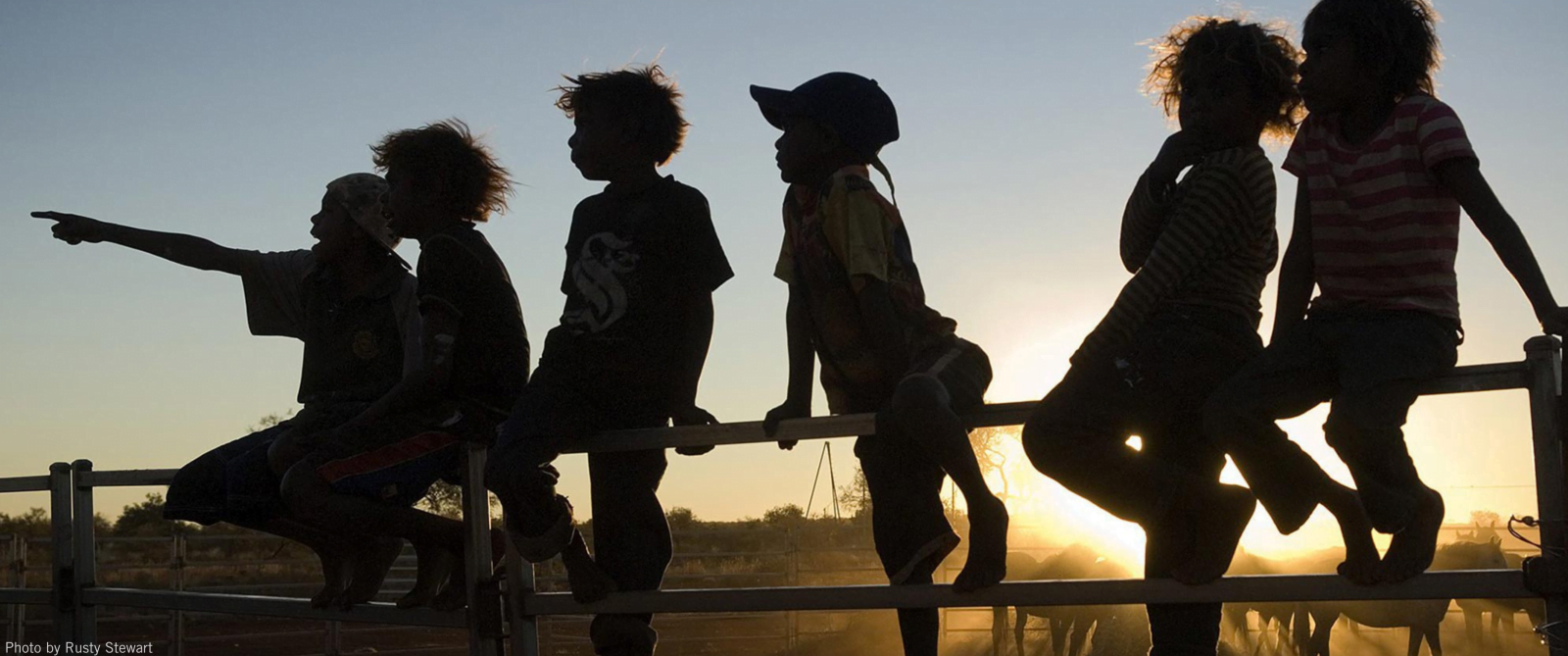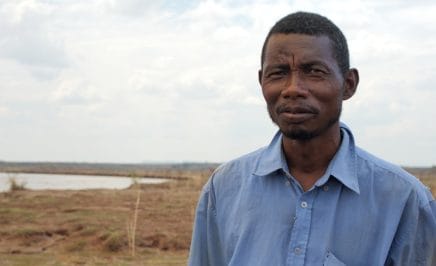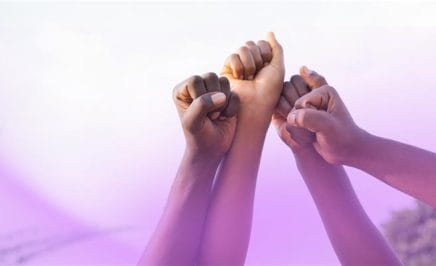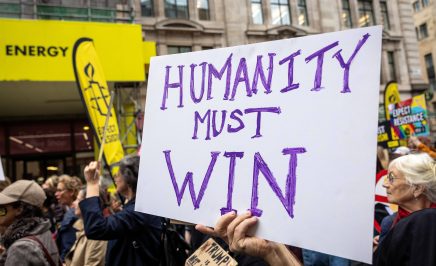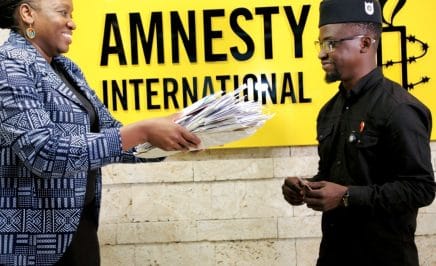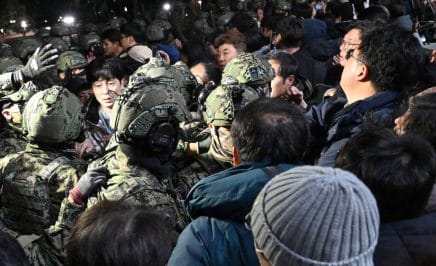Update 28/08/2024: Territorians headed to the polls on Saturday and voted strongly in favour of The Country Liberal Party (CLP). Chief Minister-elect Lia Finocchiaro, said the work would begin Sunday in “the start of a new day and a new chapter”. That is, promising to lower the age of criminal responsibility to just 10 years old and to reintroduce the previously outlawed use of spit hoods on children — a cruel practice that has been condemned as torture by the United Nations.
Amnesty International has warned the incoming Northern Territory government that its ‘tough on youth crime’ approach must not breach human rights law.
“These harsh measures will only cause more harm to vulnerable children and won’t make our communities safer.”
“It is unconscionable that the newly elected CLP government has moved to reintroduce a practice of torture against children, and as their first order of business no less.”
Kacey Teerman, Amnesty International Australia’s Indigenous Rights Campaigner.
“This goes against international human rights standards, and experts have proven with their research that locking up kids does not create safer communities. Instead, it just increases the chance of recidivism and sends already traumatised kids down the pipeline to prison. These kids need culturally appropriate therapeutic responses and role modelling, which can be provided by some of the amazing programs we’ve met with while we’ve been on the ground in the NT over the last month.” Rachael McPhail, Amnesty International Australia’s Indigenous Rights Campaign Organiser.
The way forward is through humane, evidence-based solutions that protect our children and genuinely make our communities safe. We know these programs work; according to the Northern Territory Council of Social Services, 77% of children released from Northern Territory detention return within 12 months.
The Northern Territory (NT) election is in 10 days. Amnesty’s Indigenous Justice team is there on Warramungu Country, where First Nations kids, as young as 12, currently make up nearly 100% of the incarcerated youth population. In just a few weeks time, Territorians will have a chance to use their vote to demand a system that has better outcomes for everyone.
What are Territorians voting for?
On August 24, voters are deciding who will become the 25 members of the legislative assembly (MLAs).
The next NT Government will be formed by the party with the majority of MLAs elected – they’ll need at least 13.
The NT parliament is unicameral – meaning one chamber only. Unlike the rest of Australian states, The Northern Territory and Queensland don’t have a lower and upper house — just the one legislative assembly.

Where are we now?
Territory Labor is the current NT government, with 14 of the 25 seats in parliament.
The party has said it won’t be lowering the age of criminal responsibility, but haven’t committed to raising it in line with international standards. Rather, it has suggested a review will be conducted in 2025 to determine whether the age should remain at 12.
Labor has highlighted that they will support First Nations led community solutions through local decision making and the Aboriginal Justice Agreement. However, it is worth noting that whilst in Government, Territory Labor spent $130 million on the construction of a new Darwin Youth Detention Centre, as opposed to spending these funds on Diversion programs. And, has pledged $200 million in funding to recruit 200 more police officers to the NT over the next four years.
In May, just weeks after a “punitive” three-week youth curfew was lifted in Alice Springs, the Labor government introduced new legislation designed to provide “more flexibility” to impose snap curfews in the future. Leading youth and legal advocates, including Amnesty International, raised the alarm on the bill’s infringement on civil liberties.
“The NT government can’t continue to enact the same punitive, police-driven policies and expect different results. It’s time to invest in our youth, empower our communities, and uphold the rights of all individuals in Alice Springs,”
Kacey Teerman, Gomeroi Woman and Amnesty’s International Australia Indigenous Rights Campaigner
The curfew was enacted under the Emergency Management Act 2013, typically reserved for natural disasters such as cyclones, floods and fires – not youth crime.
At the time, the NT’s own Children’s Commissioner Shahleena Musk said the policy was contradictory to the NT Anti-Discrimination Act and would “target and harm vulnerable and marginalised groups, such as Aboriginal children and young people”.
Territory Labor’s response? Chief Minister Eva Lawler said “If [a spike in crime] happens again, I’m more than happy to bring in a curfew elsewhere in the Northern Territory“.
Who is the opposition and where do they stand on youth justice?
The Country Liberal Party currently has seven MLAs. Although no response was received to Amnesty’s own inquiries, CLP candidates across the territory have suggested that if elected, they will lower the age of criminal responsibility to 10.
Opposition leader Lia Finocchiaro has also voiced support for curfew measures – “The CLP maintains that the curfew must come with consequences including referral to boot camps and mandatory community service for those who continually breach it.”
Rather than investing in evidence-based First Nations diversion programs, the party also announced it would take a policy of reintroducing mandatory alcohol rehabilitation to the election – one that both Drug and Alcohol Services Australia chief executive Eloise Page and previous NT Police Minister Kate Worden has said “don’t work”.
Instead, Eloise Page advocates for on-country rehabilitation that fosters connection to culture and addresses the root causes of trauma and disadvantage – in line with Amnesty’s campaign for both state and federal governments to increase funding for Indigenous led and evidence based alternatives to prison.
What about the Greens?
The Northern Territory Greens have never had any representatives in the NT Legislative Assembly. All of their candidates have committed to advocating for the age of criminal responsibility to be raised to 14 and have suggested they will invest in both addressing the structural root causes of youth crime, as well as evidence-based, independently evaluated early intervention and prevention programs.
Peltherre Chris Tomlins, Arrernte and Warlpiri elder running for the seat of Araluen said “we must prioritise connection with country for our kids and stop them from being caught up in the criminal justice system in the first place. We need to build a community that makes all of our kids feel safe and looked after. To have a safe and vibrant community, everyone has to play their part. Connection to and protection of country are the same thing.”
Asta Hill, candidate for Braitling said “the over-reliance on incarceration in the Territory causes enormous and inter-generational harm to First Nations communities”.
The NT Greens community safety policy outlines a Breaking the Cycle Fund that will invest in evidence-based, independently evaluated early intervention and prevention programs, which step in “well before people approach the revolving door of incarceration”.
Are there any independent candidates running?
Independents currently hold four of the 25 seats in NT Parliament. They are unaffiliated with any political party and have the ability to determine their own policy platforms, meaning their positions vary widely.
Some of the independent candidates hold harmful views, mirroring the commentary of the CLP, and in some cases, suggesting more harmful and extreme alternatives. On the other hand, numerous independent candidates have strong and informed youth justice policies, and support raising the age of criminal responsibility to 14.
Milima May, Independent candidate for Nightcliff responded to Amnesty’s candidate survey saying; “The baromater of our successful our country is needs to be measured by the amount of Indigenous children who are at home, on their country, with their family, speaking their language, with a great education and dancing their songlines. We must stop incarcerating children.”
Here’s where you can find out if there is an independent candidate running in your electorate, and if they are committed to raising the age of criminal responsibility.
What are we campaigning for?
Uncle Rodney Dillon, Kacey Teerman and Rachael McPhail are visiting communities, listening to the voices of First Nations peoples and calling on the government to ensure the protection and empowerment of First Nations children, who as of June 2023, were 29 times as likely as non-Indigenous young people aged 10–17 to be in detention.
Amnesty is calling all parties to:
- Raise the age of criminal responsibility to at least 14; level up with international human rights standards and listen to the experts who have said time and time again that kids don’t belong in prison. It causes them irreparable trauma, removes them from their culture and support systems.
- Prevent the age of criminal responsibility from being lowered to 10 – which some voices, including those of the opposition CLP are calling for, and in doing so – ignoring the available data that tells us locking up kids does not improve community safety.
- Fund Indigenous led and evidence based alternatives to prison. It’s a simple solution; kids can receive the support they need through community-led programs that address the root causes of trauma and disadvantage. We know this because these programs already exist, and they’re working.
